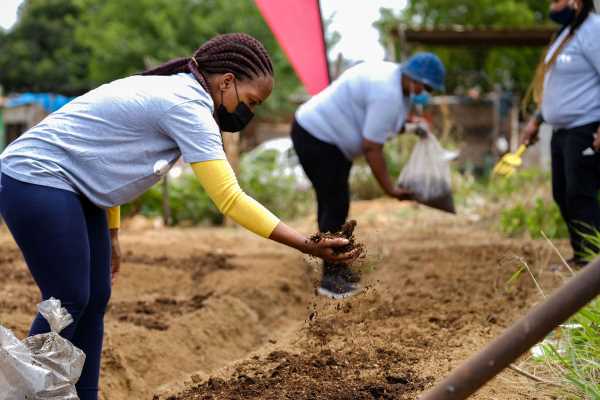Soil Degradation and Food Insecurity in Africa
Soil degradation is a significant factor driving food insecurity and ecological instability across Africa. Overgrazing and unsustainable farming practices strip the soil of essential nutrients, severely reducing annual production capacity. Composting plays a crucial role in stimulating microbial activity and enhancing soil structure, providing farmers with a vital tool to combat this trend. In urban areas, the need for soil restoration is even greater, as population growth and urban sprawl accelerate land degradation.
Loss of Urban Agricultural Land and Environmental Impact
According to UN data, more than two-thirds of Africa’s productive land is degraded. Desertification affects around 45% of the continent, and deforestation claims four million hectares of forest each year. Soil degradation also drives climate change; as soil structure erodes, stored carbon is released into the atmosphere, increasing greenhouse gas (GHG) emissions. Degraded land is also less resilient to extreme weather events, heightening vulnerability to floods and droughts. With degradation occurring up to 100 times faster than soil nutrient replenishment, crop yields have plummeted, leading to an estimated $68 billion in agricultural losses for African farmers. Additionally, unmitigated runoff exacerbates waterlogging, further hindering plant growth.
The Role of Composting in Urban Soil Restoration
The microbial transformation of organic material into compost offers a promising solution to soil degradation in Africa. Composting reduces waste, fosters biodiversity, and enhances soil health — essential in urban agriculture and ecosystem resilience.
– Enhanced Soil Structure: Compost significantly improves soil texture by promoting aggregation and porosity, enhancing aeration, water infiltration, and reducing compaction. This improved structure is especially beneficial for urban areas with disturbed soils, creating a conducive environment for plant growth.
– Increased Soil Organic Matter: Compost enriches soil organic matter and stabilizes nitrogen levels, boosting root health and plant vitality, ultimately leading to higher crop yields. It also reduces the reliance on chemical fertilizers, minimizing harmful runoff.
– Improved Water Retention: Soils enriched with compost retain moisture and oxygen more effectively. Studies show that a 1% increase in organic matter can help the soil retain up to 20,000 gallons of water per acre, benefiting plant growth and conserving water in urban areas.
– Enhanced Soil Fertility and Nutrient Cycling: Compost introduces beneficial microbes, such as mycorrhizal fungi and nitrogen-fixing bacteria, which improve nutrient uptake and plant resilience against diseases.
– Municipal Waste Management: Composting also offers a solution for managing urban waste. In Addis Ababa, for example, less than 10% of city waste is composted, but increased efforts could substantially reduce landfill waste, supporting Ethiopia’s urban agricultural future.
– Economic Benefits: Composting is economically viable, especially in urban areas where organic waste is abundant. Community composting initiatives in cities like Maputo, Mozambique, empower local farmers to improve soil fertility sustainably.
These benefits underscore the value of composting, prompting the need for advanced processing facilities in cities and incentives for widespread adoption among farmers.
Rising Interest in Urban Composting Across Africa
As urbanization and food insecurity rise, African governments and communities are increasingly investing in sustainable composting. In Nairobi, the Norwegian Investment Fund (Norfund) has supported organic fertilizer and composting projects to drive a circular economy, processing 60,000 tons of waste and reducing carbon emissions by 50,000 tons. These initiatives improve urban soil health, enabling community gardens for fresh produce.
Composting and Sustainable Urban Development
Composting is a proven method to enhance soil structure and sequester carbon, making it a promising solution for urban land restoration and climate action. However, composting isn’t without its challenges, such as GHG emissions during decomposition and the slower process compared to chemical fertilizers, which are often necessary to meet high food demand. In Benin, farmers compost household and crop waste to counteract chemically induced soil infertility, boosting resilience to droughts and floods that threaten food supply in urban areas.
Revitalizing Africa’s Urban Lands Through Composting
Composting is a transformative practice for urban land restoration in Africa. It offers a sustainable alternative to chemical fertilizers, enhancing soil health and resilience. With appropriate investments and supportive policies, composting could become a standard for ensuring food security for growing populations in urban areas.


